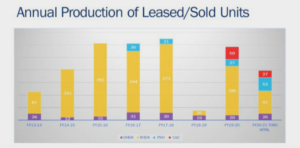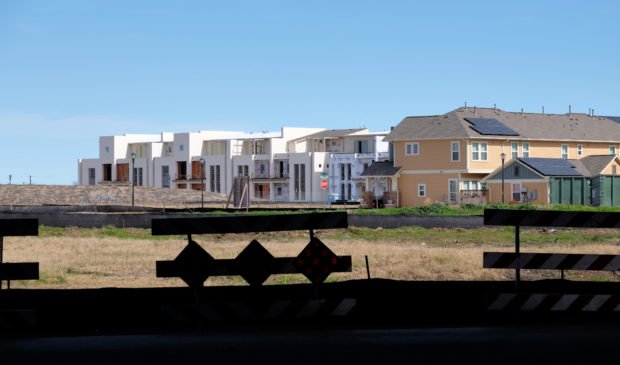With the help of city subsidies, over 3,000 affordable homes are in the pipeline
Thursday, June 17, 2021 by
Jonathan Lee The Housing and Planning Department presented an update on the city’s development subsidy programs for affordable housing at Tuesday’s Housing and Planning Committee.
“We know that it’s not enough, but we are proud of seeing that pipeline get filled,” said James May, community development manager with the department.
“This solution of the city coming in and providing subsidies I think is critical if we want to keep low-income people in the city,” Council Member Greg Casar said.
The Austin Housing Finance Corporation offers a few ways to help developers make income-restricted affordable housing financially feasible. Two programs, Rental Housing Development Assistance (RHDA) and Ownership Housing Development Assistance (OHDA), provide direct assistance to developers who build income-restricted housing. The department also funds permanent supportive housing (PSH) and continuum of care (CoC), two types of housing services for people who have experienced homelessness.
The chart below shows the amount of housing produced in the last several years through the department’s subsidy programs. More charts and statistics can be found here.

Image courtesy city of Austin Housing and Planning Department
Most of the development assistance funding – approximately 75 percent – comes from general obligation bonds, like the 2018 affordable housing bond. As those funds run out, Project Connect’s $300 million anti-displacement fund, the city’s largest-ever investment in affordable housing, is likely to become the main source of revenue over the next several years.
Because the city tries to keep development assistance under $50,000 per unit – units often cost between $175,000 and $200,000 to build, according to Mandy De Mayo with Housing and Planning – projects that participate in the programs typically get additional funding and incentives from other sources, such as the state’s Low-Income Housing Tax Credit program. “We really work with our development partners to leverage our dollars with additional funding sources,” De Mayo said.
Currently there aren’t enough funds for all of the projects seeking assistance. Ten projects have asked for a total of $39 million in RHDA funding in the last quarter of this fiscal year, more than the department can offer. “If we were to approve or recommend approval for all of these investments, it would cost us a little over $39 million, which is a large number that we don’t have,” May said. “Which is why our staff works with these developers to not only drive these numbers down, but to select the appropriate investment at the right time.”
The department is working on multiple initiatives related to development assistance, including better integrating OHDA subsidies into incentive programs like SMART Housing and Affordability Unlocked and creating a package for PSH projects that receive the state 9 percent low-income housing tax credits that would include automatic RHDA grants, housing vouchers and support services.
Casar noted that the next big piece of work for the department – administering Project Connect’s anti-displacement funds – must be done urgently as the rise in housing costs in the city shows no sign of abating. “It’s really important for us to get that work moving as quickly as we can, because if prices are going up and up and up for the everyday person, then that means displacement is accelerated. That means it will be even more expensive for the city to keep people in place.”
Photo made available through a Creative Commons license.
The Austin Monitor’s work is made possible by donations from the community. Though our reporting covers donors from time to time, we are careful to keep business and editorial efforts separate while maintaining transparency. A complete list of donors is available here, and our code of ethics is explained here.
You're a community leader
And we’re honored you look to us for serious, in-depth news. You know a strong community needs local and dedicated watchdog reporting. We’re here for you and that won’t change. Now will you take the powerful next step and support our nonprofit news organization?








